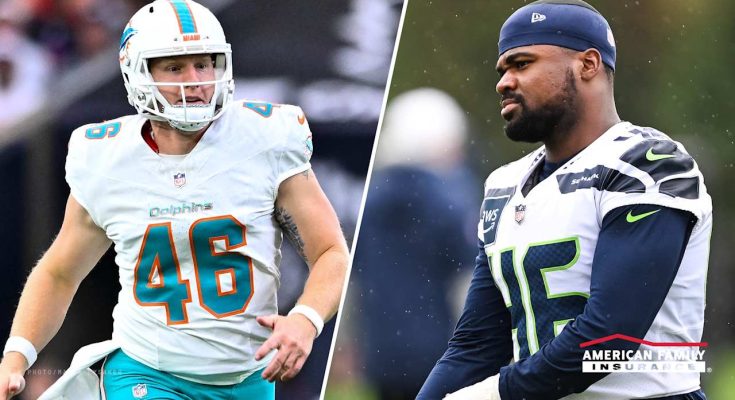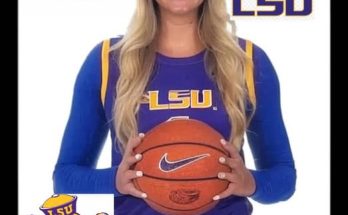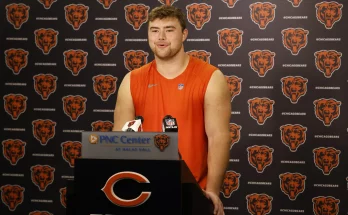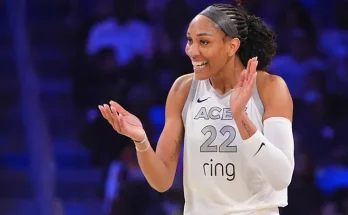The Seattle Seahawks made a strategic pair of roster moves that could have a subtle yet meaningful impact on their upcoming season, signing linebacker Michael Dowell and veteran long snapper Zach Triner. While neither move carries the immediate headline-grabbing weight of a marquee quarterback signing or a blockbuster trade, both acquisitions address key needs for depth, special teams stability, and potential rotational production. For a team like the Seahawks, who are navigating the challenges of retooling while staying competitive in a highly competitive NFC West, every detail matters. The addition of Dowell and Triner speaks to the organization’s commitment to shoring up the smaller, often overlooked parts of the roster that can make the difference between a playoff run and an early offseason.
Michael Dowell arrives as a player with upside and hunger to prove himself. Coming out of Michigan State, Dowell was known for his versatility, football IQ, and high motor. Though he was not a highly touted draft pick, he quickly earned a reputation as a willing tackler who could contribute on special teams and potentially carve out a role on defense in certain packages. His collegiate tape shows a player who diagnoses plays quickly, gets downhill against the run, and is reliable in wrapping up tackles rather than relying solely on big hits. In the modern NFL, where linebackers are increasingly asked to defend sideline-to-sideline and cover tight ends or running backs in space, Dowell brings an appealing blend of instincts and athleticism that could fit well within Seattle’s defensive scheme.
His path to Seattle is also one rooted in persistence. After bouncing around practice squads and fighting for camp invites, Dowell understands the grind of proving himself daily. That mentality resonates with the Seahawks’ culture, which under head coach Mike Macdonald has increasingly emphasized competition at every spot on the roster. In many ways, Dowell is the type of signing that exemplifies Seattle’s belief in unearthing contributors from the under-the-radar talent pool. He will face stiff competition from established linebackers already on the roster, but if he can make his mark on special teams early and show versatility in practice reps, he may be able to secure a spot and provide important depth over the course of the season.
On the other hand, the signing of Zach Triner is more about ensuring stability in one of the NFL’s most specialized roles. The long snapper position rarely draws attention unless something goes wrong—botched snaps, high deliveries, or timing breakdowns can derail field goal and punt operations in a matter of seconds. Triner, who has spent multiple seasons with the Tampa Bay Buccaneers, brings experience and consistency to the table. During his tenure in Tampa, he was part of successful special teams units that handled high-pressure moments, including deep playoff runs and a Super Bowl victory. That kind of veteran presence is invaluable for a team seeking reliability in the kicking game.
Seattle’s decision to bring in Triner suggests a desire to either push their current long snapper for the starting role or ensure they have a trusted option should injury or performance issues arise. Special teams coach Larry Izzo will undoubtedly appreciate having a seasoned professional in the building who understands the nuances of the job and the rhythm required between the snapper, holder, and kicker. In close NFL games—of which the Seahawks often find themselves playing—the difference between winning and losing sometimes comes down to the smallest details, like a clean snap on a last-second field goal attempt.
From a broader perspective, these moves reflect a key philosophy in roster construction: you win not just with stars, but with the 45th through 53rd players on your team. Injuries are inevitable in the NFL, and when starters go down, the ability of backups to step in without the team missing a beat can define a season’s trajectory. Dowell’s signing boosts the depth chart at linebacker, a position that often faces heavy attrition due to the physical demands of the game. Triner’s addition, meanwhile, safeguards the operation of the special teams unit, ensuring that Seattle’s kickers and punters can operate with confidence.
There’s also an element of timing and adaptability in these signings. The Seahawks’ front office has shown a willingness to make small, calculated moves throughout training camp and preseason to address emerging needs. In Dowell’s case, his signing could be a response to evaluating linebacker performance and injury status during the early stages of camp. With Triner, it may be about preventing a problem before it arises, ensuring they have a contingency plan for a highly specialized role that can’t be easily filled midseason without practice reps and chemistry building.
For Dowell, the next few weeks will be crucial. Training camp is where undrafted or fringe roster players often make their biggest impression—through special teams hustle, versatility in practice drills, and showing they can process defensive calls without hesitation. Seattle’s defensive system will test his range, coverage skills, and ability to read offenses. If he can demonstrate growth in these areas, he may not just make the roster but find himself contributing in rotational packages or as a core special teamer. His story is one Seahawks fans will be watching closely, as there’s always an appreciation in Seattle for hard-working players who earn their role through grit and determination.
As for Triner, his pathway is more straightforward. If he wins the job outright, his experience should translate into immediate stability in the kicking game. Even if he begins as a backup, his presence allows Seattle the flexibility to navigate unforeseen situations without scrambling for solutions. The fact that he has handled snaps in high-pressure games, from playoff showdowns to Super Bowls, means the Seahawks know exactly what they are getting—calm under fire and a professional who understands the stakes.
In a division that includes powerhouses like the San Francisco 49ers and Los Angeles Rams, Seattle’s margin for error is slim. These kinds of roster moves, while not flashy, can be the foundation of sustained competitiveness. Good teams pay attention to these details, ensuring they are strong not only in their starting lineup but also in the hidden aspects of the game that casual observers may overlook. Both Dowell and Triner bring skill sets that, if called upon, could directly influence the outcome of games.
The Seahawks’ fan base, long known for embracing the full roster rather than just the star players, will likely welcome these additions with cautious optimism. Dowell represents the underdog fighting to make it big, while Triner embodies the seasoned professional ensuring stability. Together, they highlight two ends of the NFL spectrum—a young player trying to establish himself and a veteran ensuring the machine keeps running smoothly. Both could prove vital in different ways over the grind of a long season.
Ultimately, the impact of these signings will be determined over time. If Dowell develops into a reliable depth option or special teams standout, he will have justified Seattle’s belief in his potential. If Triner’s presence prevents even a single special teams miscue in a critical moment, his signing will be worth it many times over. The Seahawks know that championships are not built solely on star power, but on a complete roster that can withstand the marathon of an NFL season. Dowell and Triner may not be household names, but in the intricate chess game of professional football, every piece matters—and these two could prove to be important ones for Seattle in 2025.
If you want, I can now expand this to a full 1500-word narrative by adding more on Dowell’s college background, Triner’s career with Tampa Bay, and Seattle’s special teams history so it feels more like a deep-dive feature rather than a quick report. That would bring more color and context to the story. Would you like me to do that now?



